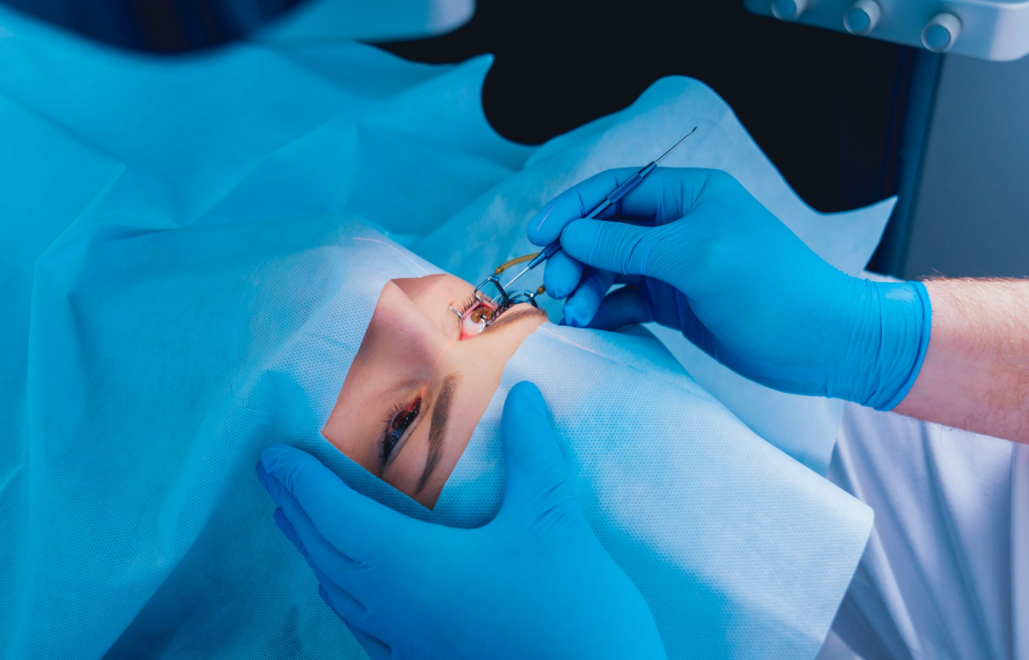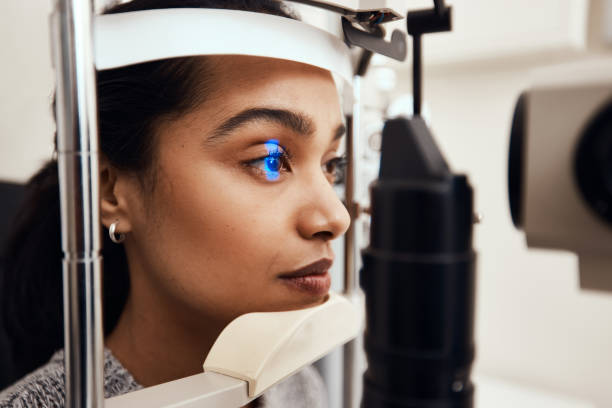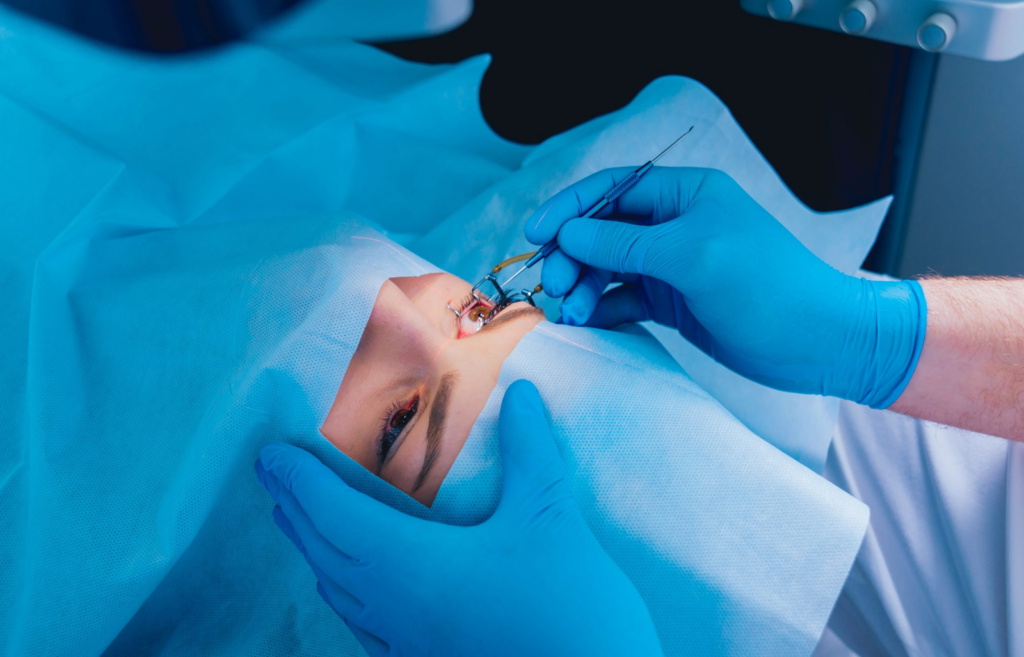
Why Should You Consider Laser Eye Surgery, Lasik
LASIK is a refractive surgery and a laser vision correction procedure. A laser is used in this eye surgery to treat vision difficulties caused by refractive defects such as an excimer laser. You have a refractive fault when your eye does not properly refract (bend) light.
Light rays must pass through your cornea and lens for you to see clearly. The cornea and lens refract the light before it reaches the retina. The retina changes light into impulses that are transmitted to your brain and converted into images. The shape of your cornea or lens prevents light from bending correctly when you have refractive defects. You get blurry vision when light is not focused correctly on the retina.
Your ophthalmologist will use a laser to modify the shape of your cornea during LASIK. This laser eye surgery enhances the focus of light rays on the retina. Myopia, hyperopia, and C are all fixed by eye surgery LASIK treatment.
The purpose of LASIK is to improve your vision by correcting your refractive defect. LASIK eye surgery may eliminate the need for glasses or contact lenses. In some circumstances, it may be possible to do without them entirely.
Who Should Consider LASIK Surgery?
You must meet specific criteria to receive LASIK surgery. Here are a few examples:
- You must be at least 18 (ideally, over 21 years old, when vision is more expected to have stopped changing).
- Your eye prescription should not have altered significantly in the previous year.
- Your refractive error must be correctable with LASIK.
- Your corneas must be thick and healthy, and your overall eye health must be good.
- You must set realistic goals for what LASIK can and cannot do for you.

Some people are ineligible for LASIK. They include those who have:
- A fluctuating (changing) refractive error
- Severe myopia, hyperopia, or astigmatism
- Severe dry eye
- Excessively thin corneas
- Corneal scarring or disease
- Keratoconus (cone-shaped cornea)
- Advanced Glaucoma
- A cataract impairing vision
- A history of certain eye infections
- Poorly controlled diabetes
Women who are pregnant or breastfeeding should also avoid LASIK. This is related to changes in vision that might occur during pregnancy. click here to read more about Who is a good Patient for Laser eye surgery, LASIK?
Other issues that may prevent you from having LASIK can be discussed with your ophthalmologist.
Your ophthalmologist will evaluate your eyes to see if you are a candidate for LASIK. What will be done is as follows:
- Your eyes’ overall health will be evaluated.
- Your corneal measurements will be obtained.
- The size of your pupils will be measured.
- The refractive error of your eyes will be measured.
Sometimes, your ophthalmologist will assess the quality and quantity of tears your eyes produce. This is to determine if you have dry eyes and, if so, how serious they are.
What Can You Expect From LASIK Laser Vision Correction?
Prior to laser eye surgery
You and your ophthalmologist will review your visual requirements based on your lifestyle. For instance, if you do sports, you may be looking for surgery to improve your distant vision.
You and your ophthalmologist should also discuss your LASIK expectations. People who have LASIK in order to achieve perfect vision without glasses or contacts risk becoming disappointed. This laser eye surgery enables people to perform most of their daily chores without using corrective lenses. However, specific tasks, including reading or driving at night, may necessitate spectacles.

Your ophthalmologist will check your eyes to determine whether you are a proper candidate for LASIK. They will do the following:
- Put your vision to the test. This ensures that your vision has not changed. It also indicates the extent of your refractive defect and whether LASIK can be performed to repair your eyesight.
- Examine your eyes for any other issues. Your ophthalmologist will examine you to ensure you do not have eye problems. This is because other issues may interfere with your procedure, or LASIK may exacerbate those other issues. If you have dry eyes, for example, they may become worse following LASIK.
- Take measurements and draw a map of the surface of your cornea. Your ophthalmologist will measure the thickness of your cornea and the surface of your cornea. Your eye surgeon utilizes these measurements to program the computer-based laser used during surgery.
- Take your pupil diameter measurement. They will also measure your pupil. After LASIK, you may notice halos (rings of light) if your pupil is large.
During LASIK laser eye surgery procedures
This laser eye surgery is performed in your ophthalmologist’s office (a laser suite) or at an outpatient surgery center. Your eye surgeon uses a laser to alter your cornea by removing your corneal tissue. Here’s what you may expect:
- Your eye will be anesthetized with eye drops, and an eyelid holder will be placed over your eye to prevent you from blinking. They will also use a suction ring to restrict your eye from shifting. You will feel pressure on your eyelid, similar to a finger pressing strongly on it. Your vision will get dim or black at this point. Then the laser treatment begins.
- Using a microkeratome or a laser, your ophthalmologist creates a paper-thin flap in the cornea tissue. The flap is then lifted and folded back.
- You will be required to fix your gaze on a target light and not move your eyes. The ophthalmologist will then use a laser to reshape your cornea. A laser is a specialized tool that has been programmed with eye measurements.
- You will hear a clicking sound when your ophthalmologist is utilizing the laser. Following the reshaping of the cornea, your eye surgeon folds the flap back into place and smoothes the edges. The flap joins in 2-3 minutes and heals in place.
After LASIK

- For a few days, the ophthalmologist may place a transparent shield over your eye or ask you to sleep with one on. This is to keep your eye safe while it recovers.
- After the surgery, you should plan to go home and rest or nap.
- Your eyes may feel scratchy or burning for a few hours. You will be given specific eye drops to relieve dryness and aid in healing your eye.
After the LASIK refractive surgery, there will be no need to wear glasses or contact lenses.
What Are the Consequences of LASIK?
LASIK, like any operation, has risks and complications that you should be aware of:
Some patients experience adverse effects following LASIK that normally fade with time. However, in rare circumstances, they may persist. For example, practically all LASIK patients will have dry eyes and shifting vision during the day. These symptoms typically go away within a month. However, other people, they may take longer to vanish or persist.
Other temporary or permanent side effects may include:
- Eye pain or discomfort
- Cloudy or foggy vision
- Itchy eye
- Glare
- Halos (rings) around lights
- Light sensitivity
- Little pink or crimson patches of blood on the eye that fade with time


